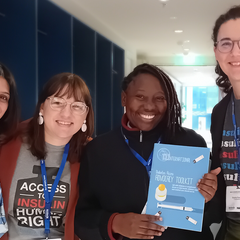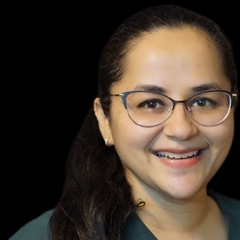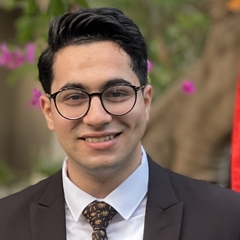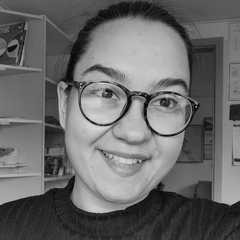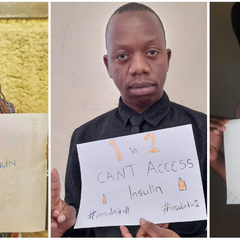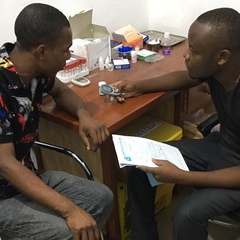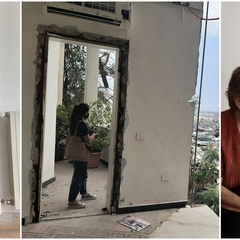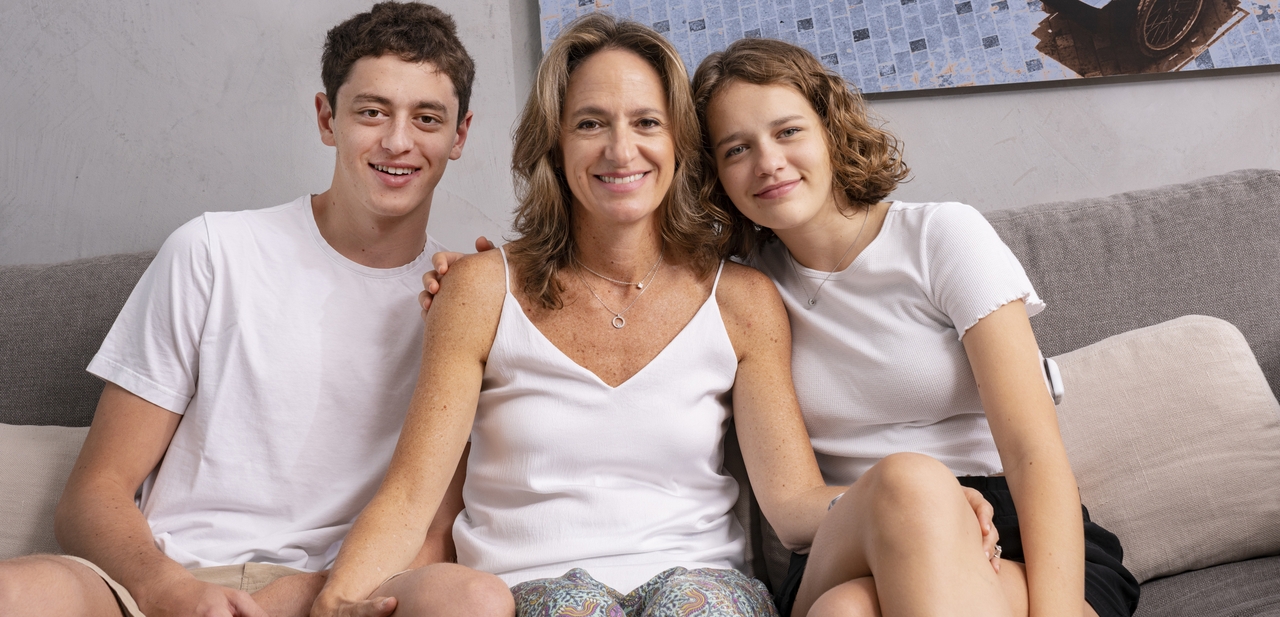
Global Advocacy Success Series: Pilar, Panama
4 Apr 2023, 12:10 p.m. in Global Stories, Interviews by Faith Amasowomwan
In 2017, our Global Partner Representative, Pilar, moved from the UK to Panama and discovered a stark difference in reality when it came to healthcare. Pilar realised that diabetes care and education within Panama was nowhere near as accessible as it was in the UK and that this was leading to inadequate care for patients, particularly children.
Pilar recognises the disparity in access to medical supplies, education and support for people with diabetes across countries. She said, “Most people in the UK have insulin and glucagon in their refrigerator, and they have access to a continuous glucose monitor. In Panama, Glucagon is not available at all and people without insurance have no access to insulin. Panama's not even the most challenged healthcare system in the region. There are countries where the healthcare system doesn't even pay for insulin at all.”
In Panama, there are several factors that prevent adequate care, including: an outdated public health system when it comes to diabetes management; limited number of health professionals (doctors, nurses and nutritionists) specialized and up to date on type 1 diabetes management, lack of certified diabetes educators and lack of education on behalf of people living with type 1 diabetes and their families. All these factors become the perfect storm for most lower income families.
To begin to overcome these hurdles, Pilar decided to start a support group for mothers based on two pillars: diabetes education and peer support. By 2019, Pilar had registered DiabetesLATAM as a charity and had built a team of 6-10 volunteers to support her efforts to impact as many families with children with diabetes as she could.
Currently DiabetesLATAM has a database of 1,500 members, 67% of which are members from Panama and the rest from other countries, mostly in Latin America. DiabetesLATAM provides five online courses, four face to face courses and three working committees to teach parents, teachers, children, and adults about diabetes care, from diagnosis to being self-sufficient in caring for themselves and to advocate for better care in the health system. They also invite speakers to talk to parents and provide training sessions 8-12 times a year to educate them on different aspects of diabetes care. Aside from education, DiabetesLATAM has developed a programme called ‘Life for Diabetes’ in conjunction with Life for a Child and Insulin for Life where they educate and support over 180 people with type 1 diabetes and their caregivers and donated insulin and supplies as well as providing free hbA1c and kidney-function tests.
Since the very beginning of their conception as a charity, DiabetesLATAM has been a Global Partner Organisation to T1International. Pilar notes the importance of being a member of the Global Advocacy Network in her fight for advocacy. She says that T1Interantional provides a voice for the community. Listening to the different testimonies and sharing stories within the network gives her a sense that she is not alone in this fight.
Recently, with funding from T1International, DiabetesLATAM has been working towards creating a roadmap that outlines the process of diabetes treatment and provision of insulin and other diabetes supplies within the Panama healthcare system. In order to create this, Pilar has interviewed nutritionists, patients and doctors within the government insurance scheme and the Ministry of Health. It has proven difficult to find a direct pathway and it is clear that patients are having to dedicate a huge amount of time every single month navigating the system to get the insulin and supplies they need to live a healthy life.
Over the years, Pilar has learnt how difficult it is to advocate and witnessed many people run out of steam along the way. She recognises that advocacy is exhausting, particularly when you also have diabetes. “When I've asked my children to collaborate in different initiatives, or when I question why they're not more enthusiastic with the charity - like I am - the answer that they give me is that they live with diabetes every single day,” explains Pilar. “They tell me, ‘the last thing we want to do on a weekend is talk about diabetes, even if that means helping other people. We want to be out with our friends, not talking about what we already have to live with every day.’”
Pilar says that more support and pressure is needed on the government to make treatment and education for type 1 diabetes more accessible. The government can say they have done their job by passing laws, but the reality is that these laws are not being implemented: “We identified two laws in Panama that were approved about 3 years ago and haven't been implemented. Those two laws, if implemented, would improve the health care system substantially but it would probably take 5 years of people hammering at this every single day to get it done.”
In order to build more awareness and empower the type 1 diabetes community in Panama to advocate for their rights to healthcare, Pilar aims to use future training sessions at DiabetesLATAM to start mobilising and providing patients with the skills needed to advocate and campaign for access to insulin. This will be supported by T1International and their Fight for Five campaign. Fight for Five is the organisations Global Priority, aiming to see a world where insulin costs no more than 5% of the median salary in any given country.
Ultimately, T1International and Pilar have the same goals. Pilar says she wants patients to feel empowered, not only to look after their own needs, but to try to fix the broken system. “We can write letters to Senators, or we might do interviews, and go out and the media and put a face to the problem. I think we can do it.”
Find out more about DiabetesLATAM here. This post was updated July 2024.




